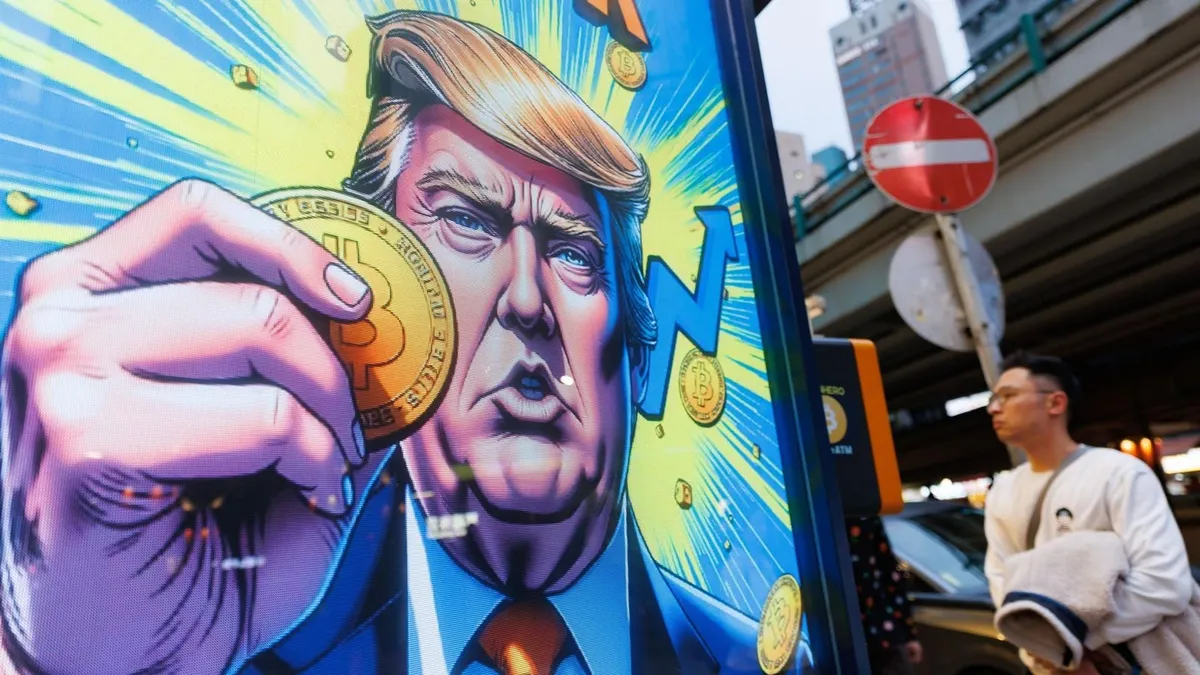
In the wake of his presidency, Donald Trump has embarked on a series of innovative business initiatives, notably through the establishment of three prominent entities: the Trump Media & Technology Group, World Liberty Financial, and the $TRUMP meme coin. These ventures provide various pathways for allies, favor seekers, foreign firms, and governments to channel financial support into Trump's growing business empire.
Founded shortly after Trump’s departure from the White House, Trump Media made headlines by going public in March 2024 via a merger with a blank check company. This organization operates the social media platform Truth Social and the streaming service Truth+, while also branching into financial services. Trump himself holds approximately 115 million shares—equating to about 52% of the company's total equity—valued at $2.9 billion as of the last trading session, all managed within his revocable trust.
Investors can support Trump Media in two primary ways: purchasing shares directly through private sales, which infuses substantial cash into the company, or engaging in open-market transactions that help sustain the value of Trump's holdings. Notably, entities such as a Canadian credit union, a locally operated bank from Switzerland, and a Japanese financial services firm disclosed ownership of shares prior to Trump's inauguration, according to SEC filings. Despite these investments, Trump Media's advertising revenues have remained modest, with only $821,000 reported in net sales during the first quarter, primarily driven by smaller MAGA retailers and promotions for Truth+.
Just three days before assuming office, Trump launched the $TRUMP meme coin—a cryptocurrency characterized by its lack of intrinsic value and reliance on internet trends. This initiative quickly garnered attention, achieving a market cap of $15 billion, although it has since declined to approximately $2.8 billion. Trump utilized his substantial social media following to promote the coin, encouraging followers to join his "very special Trump Community" and celebrate "WINNING."
Through partnerships with CIC Digital, which manages the meme coin, and another entity called Fight Fight Fight, Trump retains ownership of 80% of the coins. This structure ensures that as demand increases, the value of their holdings rises. Additionally, these companies impose transaction fees ranging from 0.1% to 10% on trades, which generated nearly $100 million in the coin's initial two weeks. A promotional contest offering a black-tie dinner with Trump further spiked the coin's price by 70%, although it has since stabilized around $14. Interestingly, over 70% of the largest holders of the $TRUMP coin are reportedly based outside the United States, as indicated by crypto researcher Molly White.
Trump's role as a chief advocate for cryptocurrency extends to World Liberty Financial ($WLFI), a decentralized finance platform launched in September 2024. This innovative protocol operates as a banking system on the blockchain, facilitating peer-to-peer lending, fundraising, and the trading of digital assets. Token holders of $WLFI have the authority to propose and vote on regulatory changes, promoting a community-driven approach.
World Liberty Financial generates revenue through its token sales and related products, including USD1, a stablecoin pegged to the U.S. dollar. Trump and his family reportedly hold about 60% ownership of the company through a limited liability company (LLC) and possess 22.5 billion $WLFI tokens. The LLC is entitled to 75% of the proceeds from token sales, ultimately translating to substantial profit. For instance, in March, World Liberty Financial announced sales of $550 million worth of $WLFI, projected to yield around $400 million in profits for Trump and his family.
Trump's foray into social media and cryptocurrency has significantly transformed his financial status post-presidency. According to estimates from Forbes, he has more than doubled his wealth within just one year, primarily due to the success of Trump Media and various digital assets. These new business ventures operate in sectors with minimal regulatory oversight, enabling quicker and less traceable financial transactions compared to traditional investments.
Despite the lucrative nature of Trump's business endeavors, they have not gone without controversy. An ethics white paper released by the Trump Organization in January asserted that the Constitution does not prohibit a sitting president from managing their businesses. However, to mitigate potential conflicts of interest, an external ethics advisor was hired, and Trump committed to maintaining his assets in a trust.
Yet, following the publication of this white paper, the organization dismissed the ethics advisor after he incurred Trump's displeasure for also representing Harvard University. As of recent reports, the identities of individuals and entities funneling money into Trump's businesses remain largely obscured, raising concerns about transparency and accountability.
The future of Trump's financial ventures may face new challenges. Recently, nine Senate Democrats withdrew their support for a cryptocurrency-friendly bill, citing concerns over potential conflicts of interest tied to Trump and World Liberty Financial. In response, they introduced the End Crypto Corruption Act, aimed at prohibiting the president and other officials from endorsing or promoting cryptocurrency assets.
Looking forward, Trump's next financial disclosure, due on May 15, will likely provide further insight into the revenue generated by his various enterprises, including Trump Media, World Liberty Financial, and the $TRUMP coin.
Trump's business ventures represent a unique intersection of politics, finance, and emerging technologies, marking a new chapter in his post-presidential career. As the landscape of cryptocurrency and digital finance evolves, the implications of these initiatives will continue to unfold, drawing both interest and scrutiny from various stakeholders.